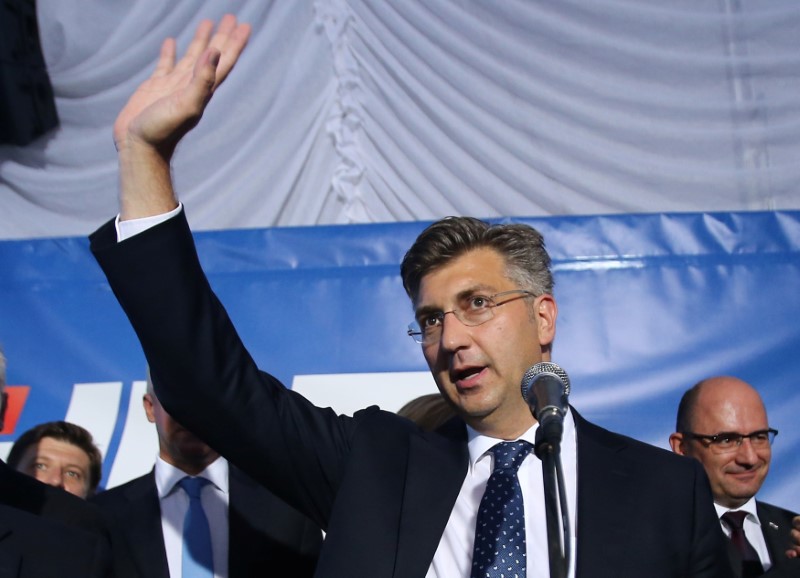By Igor Ilic
ZAGREB (Reuters) - Croatia's Prime Minister-designate Andrej Plenkovic said on Tuesday he had chosen ministers for his cabinet and would seek parliamentary approval this week.
His government's main tasks will be to fix fragile public finances and boost moderate growth in the newest European Union member, one of the bloc's weakest economies.
"I believe it's a choice of people who are ready to give their utmost in the coming years for the benefit of the country," Plenkovic, a 46-year old former diplomat and leader of the conservative HDZ party, told reporters.
He did not provide the names of all the ministers, but said there would be four deputies, one of whom would be Martina Dalic in charge of the economy. She was briefly the finance minister in a previous HDZ government five years ago.
The parliament is expected to vote on Plenkovic's proposal for new cabinet on Wednesday.
Zdravko Maric has retained his position as finance minister as expected, state television reported.
Markets are likely to welcome the news as his efforts in a previous cabinet made it possible for Croatia to cut the budget gap to below three percent of gross domestic product for the first time in almost a decade.
"Stronger growth and further fiscal consolidation with more focus on the spending side should be priorities for the new government," said Hrvoje Stojic, an analyst from Addiko Bank.
Croatia's economy is expected to grow this year slightly more than 2.5 percent, but analysts largely believe that without measures to significantly improve the business climate the country is unlikely to perform any better in the coming years.
The new government, comprising the HDZ and its junior centre-right reformist partner Most (Bridge), will have 19 ministries, one less than the previous HDZ-Most cabinet which collapsed in June after just five months due to bickering over a conflict of interest involving a former HDZ leader.
HDZ, which has vowed to boost growth to five percent by the end of the four-year term, won 61 out of 151 seats in a snap election on Sept. 11. Besides a coalition deal with Most, which will run four ministries, it has also secured support from ethnic minorities.
